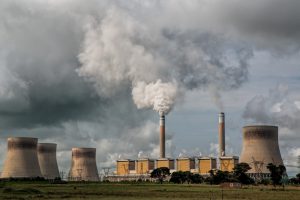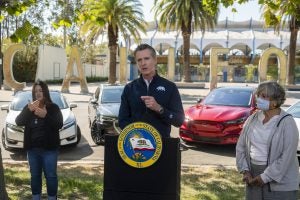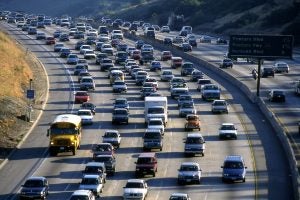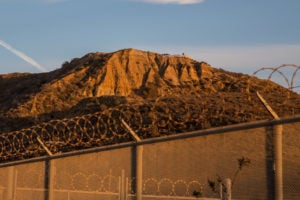 November 9, 2020
by Hunter Johnston
Air
Chemicals
Regulations
November 9, 2020
by Hunter Johnston
Air
Chemicals
Regulations
On October 1, 2020, the Environmental Protection Agency (EPA) finalized text for a final rule that proposed to change the way facilities that emit hazardous air pollutants (HAPs) are regulated under the Clean Air Act.[i] The rule, titled Reclassification of Major Sources as Area Sources Under Section 112 of the Clean Air Act, purports to implement a plain language interpretation of Section 112 of the Clean Air Act.[ii] In practical effect, the final rule provides that a “major source” can reclassify to “area source” status at any time after reducing its actual or potential hazardous air pollutants (HAP) emissions to below the major source threshold of 10 tons per year (tpy) of any single HAP and 25 tpy of any combination of HAPs.[iii] Additionally, the rule amends Clean Air Act requirements regarding compliance dates, notification, and record keeping.[iv]
 November 8, 2020
by Samuel X. Frank
Regulations
Sustainability
November 8, 2020
by Samuel X. Frank
Regulations
Sustainability
The CEQ’s new regulations seek to make NEPA more efficient for agencies. Could transforming NEPA into a regulatory commission solve its efficiency problems while protecting, and building upon, its effectiveness?
 October 20, 2020
by Camden Douglas
Air
Climate change
Fossil Fuels
Regulations
State and Local
October 20, 2020
by Camden Douglas
Air
Climate change
Fossil Fuels
Regulations
State and Local
On September 23, 2020, California Governor Gavin Newson issued an executive order[1] that is expected to reduce the impact of climate change by drastically transforming the State's transportation industry. California experiences many unique climate change-related problems. For instance, as a result of climate change, the duration of California's wildfire season has more than doubled since 1980.[2] Indeed, this year, California is experiencing a record-breaking burn,[3] with wildfires scorching millions of acres of land.[4] The executive order, in an attempt to attenuate some of these climate change-related impacts on the State, requires all new passenger vehicles sold in California to be zero-emission by 2035, effectively banning the sale of new gasoline-powered vehicles in just fifteen years.[5]
 April 29, 2020
by Jie Yang
Climate change
International
Regulations
Sustainability
April 29, 2020
by Jie Yang
Climate change
International
Regulations
Sustainability
Bike sharing is considered an environmental-friendly way of commuting.[1] It reduces people’s needs for driving and hence reduces carbon emission.[2] It also provides a solution to the “last mile” issue in urban commuting and promotes the development…
 April 21, 2020
by Simon Moskovitz
Fossil Fuels
Regulations
April 21, 2020
by Simon Moskovitz
Fossil Fuels
Regulations
The Environmental Protection Agency (EPA) and National Highway Traffic Safety Administration (NHTSA) recently released the final SAFE Vehicles Rule. The rule sets forth requirements for emissions and efficiency in vehicles for model years 2021-2026 and revokes the Clean Air Act waiver to California.
 February 26, 2020
by Gabriel Dowdell
Fossil Fuels
Oil and Gas
Regulations
State and Local
Water
February 26, 2020
by Gabriel Dowdell
Fossil Fuels
Oil and Gas
Regulations
State and Local
Water
Should the EPA regulate fracking more heavily? Currently, states that benefit financially from fracking regulate the industry.
 November 6, 2019
by Alka Paturi
Agriculture
Chemicals
International
Regulations
November 6, 2019
by Alka Paturi
Agriculture
Chemicals
International
Regulations
Chlorpyrifos has been the subject of much regulation in recent years. With the European Union on track to ban large-scale agricultural use of chlorpyrifos, where does the EPA stand on this hazardous chemical?
 August 15, 2019
by James D. Cromley, J. Michael Showalter, & Schiff Hardin
Litigation
Regulations
August 15, 2019
by James D. Cromley, J. Michael Showalter, & Schiff Hardin
Litigation
Regulations
A recent Supreme Court decision indicates that at times, courts may be able to look beyond the existing administrative record when reviewing administrative decisions. In Department of Commerce v. New York, the Court looked beyond the record and blocked an agency decision that found to be based on a “contrived,” pretextual rationale.
By James D. Cromley, J. Michael Showalter, & Schiff Hardin, Guest Contributors
 April 27, 2019
by Sean Murphy
Chemicals
Litigation
Regulations
April 27, 2019
by Sean Murphy
Chemicals
Litigation
Regulations
Imagine the polluters in a CERCLA Superfund suit sitting in a circle playing Duck Duck Goose. That’s right—this game isn’t just for kids. CERCLA, the Superfund statute lets polluters play a similar game of liability tag in contribution actions. But is CERCLA really all fun and games?
 April 11, 2019
by Stephanie Barbanell
Public Lands
Regulations
Wildlife
April 11, 2019
by Stephanie Barbanell
Public Lands
Regulations
Wildlife
The proposed US-Mexico border wall may stop the migration of people, but what happens when it does stop the migration of animals?











